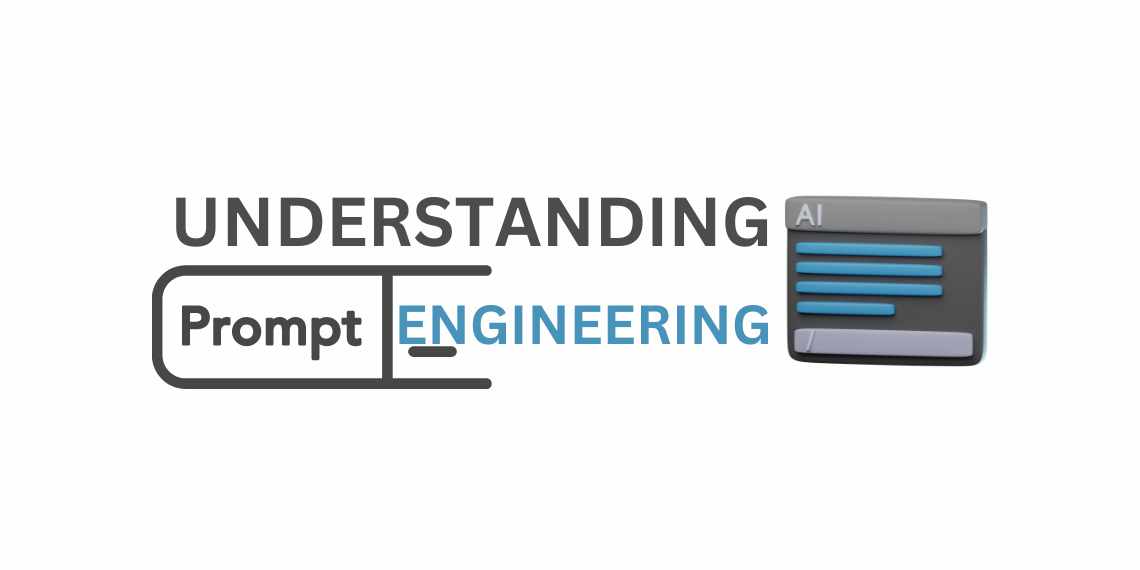Introduction
Prompt engineering is a skill that has become increasingly important in the field of artificial intelligence (AI) and natural language processing (NLP). With the rise of AI and the demand for better NLP models, prompt engineering has become a crucial aspect of developing these models. In this article, we will discuss the basics of prompt engineering in detail, covering everything from its definition and importance to the skills required to become proficient in this field.
What is Prompt Engineering?
Prompt engineering is the process of crafting and refining prompts that can be used to generate text or responses from AI language models. A prompt is a starting point that provides the AI model with context and helps it generate relevant output. Prompt engineering involves developing prompts that are specific to the task at hand, which could be anything from completing a sentence to generating an entire article.
The key to prompt engineering is to provide the AI model with enough information to generate an accurate response while avoiding bias or leading the model to generate irrelevant or inappropriate content. This requires careful consideration of the language used in the prompt, the context in which it is presented, and the target audience for the generated content.
Why is Prompt Engineering Important?
Prompt engineering is important for several reasons. First, it enables AI language models to generate high-quality output that is relevant and accurate. This is particularly important in fields such as medicine or law, where accuracy is crucial. Prompt engineering also helps to avoid biases in the generated content, which can be a problem if the prompts are not carefully crafted.
Moreover, prompt engineering is important in developing AI systems that are more efficient and cost-effective. By providing accurate and relevant prompts, the AI model can generate output faster and with fewer errors, reducing the need for costly human intervention.
Read Also: Integrating AI and chatGPT in omnichannel marketing strategies
Skills Required for Prompt Engineering
To become proficient in prompt engineering, several skills are required. These include critical thinking and problem-solving, data analysis and visualization, and Python scripting. Let’s take a closer look at each of these skills:
Critical thinking and problem-solving
Prompt engineering requires the ability to craft and create prompts that are effective in generating accurate and relevant output. This requires critical thinking and problem-solving skills to analyze the task at hand, identify the key factors that need to be considered, and craft prompts that provide the necessary context for the AI model.
Data analysis and visualization
Prompt engineering often involves analyzing large amounts of data to identify patterns and trends that can be used to develop effective prompts. Data analysis skills are essential for identifying the key factors that need to be considered when crafting prompts. Visualization skills are also important for presenting the data in a way that is easy to understand.
Python scripting
Python scripting is an essential skill for prompt engineering. Python is a popular programming language that is widely used in the field of AI and NLP. It provides a range of libraries and tools that are useful for developing and testing prompts. By learning basic Python scripting, you can become proficient in using these tools to develop effective prompts.
Getting Started with Prompt Engineering
If you are interested in getting started with prompt engineering, there are several resources available that can help you develop the necessary skills. Here are some tips to get you started:
Take a course
There are many online courses available that cover prompt engineering, AI, and NLP. These courses provide a structured approach to learning and can help you develop the necessary skills to become proficient in prompt engineering.
Practice, practice, practice
The key to becoming proficient in prompt engineering is to practice as much as possible. Try developing prompts for different tasks and test them to see how effective they are. This will help you develop your critical thinking and problem-solving skills.
Learn Python scripting
Python is an essential tool for prompt engineering. By learning Python scripting, you can automate the process of creating prompts and make it easier to test and iterate. You can find many online tutorials and courses that can help you learn Python, including the official Python documentation and popular platforms like Udemy, Coursera, and edX.
Understand the task
Before you start developing prompts, it’s important to understand the task at hand. What is the goal of the task? What kind of data do you have to work with? What are the constraints and requirements? By understanding these factors, you can develop prompts that are tailored to the specific task and data.
Choose the right language model
There are many language models available that can be used for prompt engineering, including GPT-3, GPT-2, and BERT. Each model has its own strengths and weaknesses, so it’s important to choose the right model for the task at hand. For example, GPT-3 is known for its high level of accuracy, while GPT-2 is better suited for tasks that require a more creative approach.
Fine-tune the model
Once you have chosen a language model, it’s important to fine-tune it to the specific task and data. Fine-tuning involves training the model on a specific dataset to improve its accuracy and performance for that task. This process can be time-consuming, but it’s essential for developing effective prompts.
Evaluate the prompts
After you have developed prompts using the language model, it’s important to evaluate their effectiveness. This involves testing the prompts on different datasets and measuring their performance based on metrics like accuracy, precision, and recall. By evaluating the prompts, you can identify areas for improvement and iterate on the prompts to make them more effective.
Collaborate with others
Prompt engineering is a collaborative process, and it’s important to work with others to get feedback and improve your skills. Join online communities and forums to connect with other prompt engineers and share your work. You can also collaborate with domain experts to develop prompts that are tailored to specific industries or domains.
Final Words
In conclusion, prompt engineering is a powerful tool for developing AI and NLP applications. By following these tips and developing your skills, you can become proficient in prompt engineering and contribute to the development of innovative applications in various fields. Remember to practice as much as possible, choose the right language model, fine-tune it, and evaluate your prompts to ensure their effectiveness. With dedication and hard work, you can become a skilled prompt engineer and make a meaningful impact in the world of AI and NLP.
Connect With Ali Raza, Founder and Author of Digital Realm Trend
Follow on LinkedIn
Hello, I’m Ali Raza, the brain behind Digital Realm Trends.
Hailing from the vibrant world of digital marketing, I’ve honed my skills over years. Based on my experience, I’m here to unravel the complexities of digital marketing, analytics and paid marketing, crafted for individuals like you. Join me in uncovering the power of digital marketing tools and strategies, fueled by experimentation and insights.




